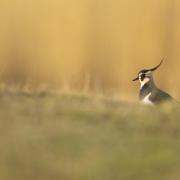Fly-tipping in Kent poses risks to wildlife, farm animals and the environment - and it’s getting worse, says Nick Sandford of the CLA
Walking in the countryside shouldn’t be blighted by litter and piles of refuse, yet many of us will have spotted rubbish bags or even much larger items of waste strewn on roadside verges or footpaths and bridleways.
The plethora of packaging from coffee cups, drink bottles to food wrappings from fast food outlets chucked mainly by drivers, walkers and even some cyclists fill the verges. I was shown pictures of an incident late one evening when a lorry load of waste was tipped along a half mile stretch of country lane in Kent, leaving broken glass and piles of rubbish including fridges and old windows behind. Locals lent a hand to clear a path before anyone could drive along the road
Fly-tipping or the illegal deposit of waste poses risks to local wildlife, farm animals and the environment and threatens to spoil the natural beauty of our countryside. It’s also on the increase: more than 20,000 incidents were reported by local authorities across Kent in 2013/14. The problem creates a costly burden for landowners who are liable for any waste that is fly-tipped on their land and can be prosecuted if they do not clear it away. Nationally, fly-tipping costs the rural business sector up to £150 million in clean-up costs every year.
Fly-tipping is often conducted by organised criminal gangs and the CLA, which represents landowners, farmers and rural businesses, has called for culprits to be dealt with more robustly.
The new Control of Waste (Dealing with Seized Property) Regulations 2015 which came into force on 6 April, broadens the range of offences for which a vehicle can be seized, removes the need for a warrant before seizure and sets out the circumstances under which the enforcement authority may sell or destroy seized property.
But fly-tipping is just one element of the crime problems which we face as landowners, farmers or residents in rural areas. Theft of machinery, tools, livestock and fuel from isolated properties are relatively common issues; more worryingly, we have heard of significant quantities of agricultural chemicals stolen from farms in the area.
In other regions of Kent we are aware of illegal hare coursing and the use of redundant or isolated barns or warehouses for smuggled products. During busy periods in the farming year there is the potential that the offer of cheap workers could be a sign of forced labour or human trafficking; farmers should always ask for a gang masters’ licence number if they are in any doubt.
In June there was good news for farmers and other landowners dealing with another rural crime - fly-grazing or the illegal abandonment of horses. Fly-grazed horses can damage land, crops and fencing, restrict space for livestock and cost money to provide for their welfare and safety. The new Control of Horses Act now allows swifter action to be taken to resolve the problem.
Under the new law, landowners can take fly-grazed horses to a place of safety immediately, notifying local police within 24 hours. If no owner is identified in four working days, the landowner can take action such as re-homing the horses to charities or selling them privately.
The CLA worked closely with a coalition of rural organisations and animal welfare charities to drive the Private Members’ Bill through Parliament following its introduction by Julian Sturdy MP in 2014. We continue to work closely with the police, local and national government to promote effective crime prevention and press for necessary legislative changes.
It is vital that those affected by rural crime report the incident as quickly as possible. Call 101 with details, but do request a crime number. Without this, your incident will not appear in police statistics and it will be harder to create a true picture of the scale of rural crime in Kent. w



























